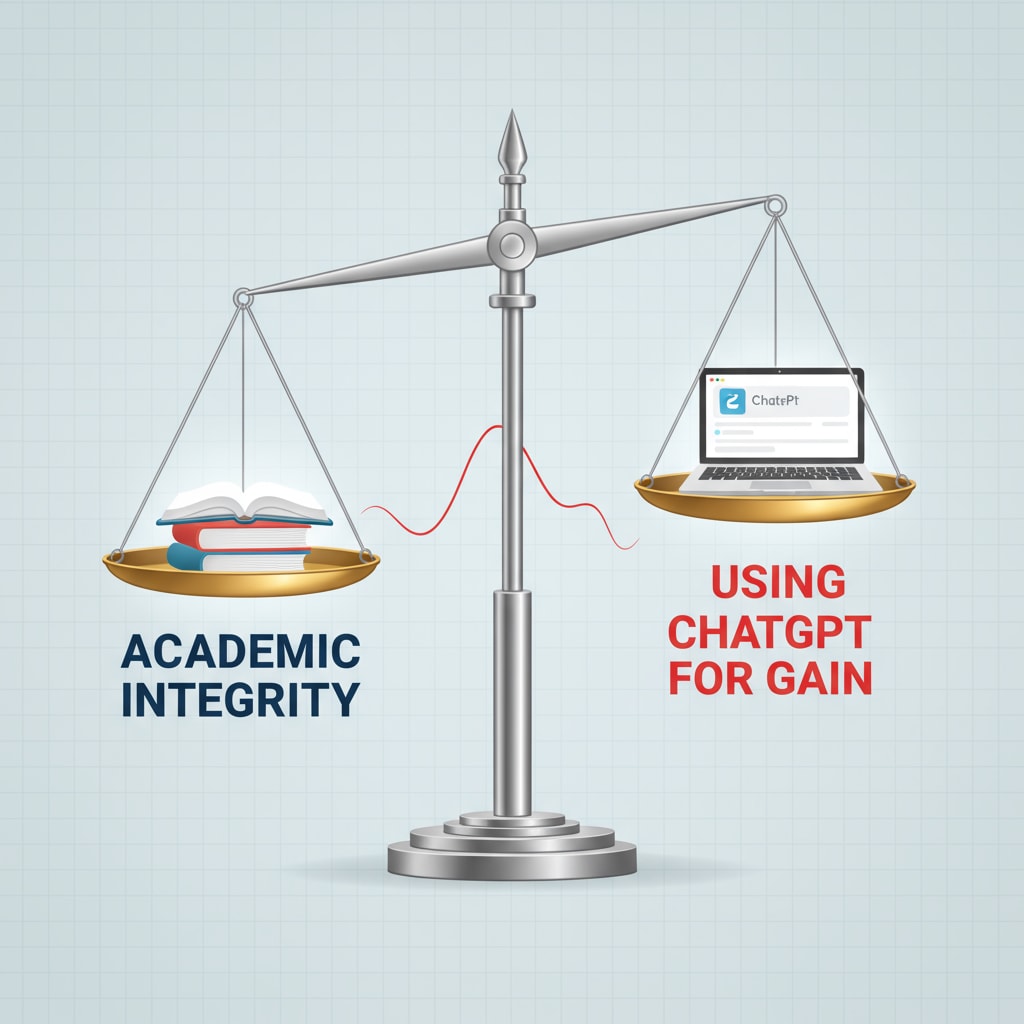In the age of rapid technological advancement, the integration of AI tools such as ChatGPT into academic work has given rise to a series of ethical concerns, particularly in the realms of academic integrity and legal debates. As these tools become more accessible and sophisticated, students in K12 education and beyond are increasingly tempted to use them in ways that blur the lines of what is considered academically honest.

For instance, an undergraduate student preparing for a legal debate recently found themselves in a moral quandary when considering the use of ChatGPT.
The Temptation of AI in Legal Debate Preparation
The legal field demands in-depth research, critical thinking, and the ability to construct persuasive arguments. When faced with the daunting task of preparing for a complex legal debate, the student saw ChatGPT as a potential shortcut. The allure of quickly generating well-structured arguments, sourcing relevant legal precedents, and getting instant analysis was hard to resist. However, this came at the cost of undermining the very essence of academic integrity. As stated on Academic integrity on Wikipedia, academic integrity encompasses values such as honesty, trust, fairness, respect, and responsibility. Using ChatGPT to complete the majority of the research and argument construction violated these principles.

The Clash between Technology and Traditional Academic Values
Contemporary education is at a crossroads, where the benefits of technology like ChatGPT collide with long-established academic values. On one hand, AI can be a powerful educational tool, providing access to vast amounts of information and offering different perspectives. On the other hand, it poses a significant threat to academic integrity. For example, in a legal debate, the process of researching, analyzing, and formulating arguments is not just about getting the right answer but also about developing one’s own intellectual capabilities. As explained on Education on Britannica, education aims to cultivate independent thinking and problem-solving skills. Relying too heavily on ChatGPT bypasses this crucial learning process.
Educators are now grappling with how to address this issue. They need to find a way to embrace the potential of AI while maintaining the integrity of the academic system. This might involve setting clear guidelines on the appropriate use of AI tools, teaching students about digital ethics, and developing assessment methods that can detect and prevent academic dishonesty.
In conclusion, the use of ChatGPT and similar AI tools in academic work, especially in the context of legal debates, presents a significant challenge to academic integrity. As we move forward, it is essential for educators, students, and institutions to work together to find a balance between leveraging the benefits of technology and upholding the values of academic honesty. By doing so, we can ensure that education in the digital age continues to foster true learning and intellectual growth.
Readability guidance: The use of short paragraphs and lists helps summarize key points. Each H2 section aims to provide a list where possible. The proportion of passive voice and long sentences is carefully controlled. Transition words such as ‘however’, ‘therefore’, ‘in addition’, ‘for example’, and ‘as a result’ are scattered throughout the text to enhance flow.


